Thoughts in Action – Educational Series: HOA & Condo
By: Pedro Garcia
On October 3, 2018, a group of expert panelists gathered at the Provident Doral at The Blue Miami for a Thoughts in Action discussion panel organized by Affinity Management Services to discuss community association budgeting and governance issues.
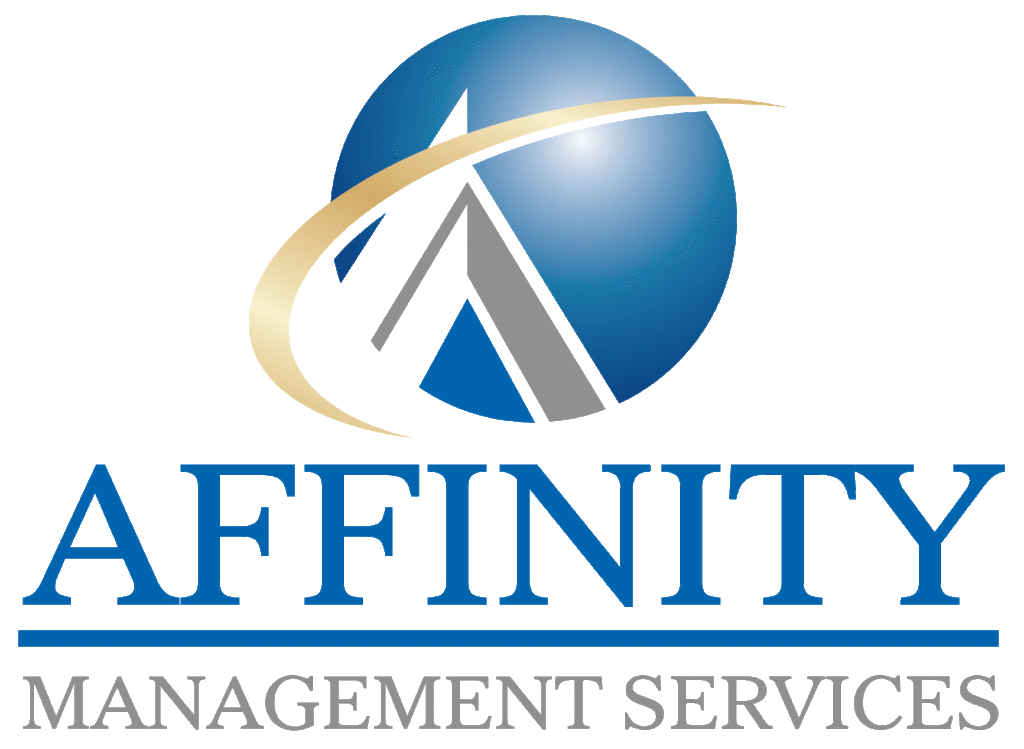 The discussion was moderated by City of Doral Councilwoman Christi Fraga, and the panel of experts included Lazaro Gonzalez from Florida DBPR, Rafael Aquino and Pedro Garcia from Affinity Management Services, Salvador Jurado from Jurado Law Group, Alex Leonardo from CPA firm Lanter, Leonardo & DiCrescenzo, and Richard Garcia from City National Bank.
The discussion was moderated by City of Doral Councilwoman Christi Fraga, and the panel of experts included Lazaro Gonzalez from Florida DBPR, Rafael Aquino and Pedro Garcia from Affinity Management Services, Salvador Jurado from Jurado Law Group, Alex Leonardo from CPA firm Lanter, Leonardo & DiCrescenzo, and Richard Garcia from City National Bank.
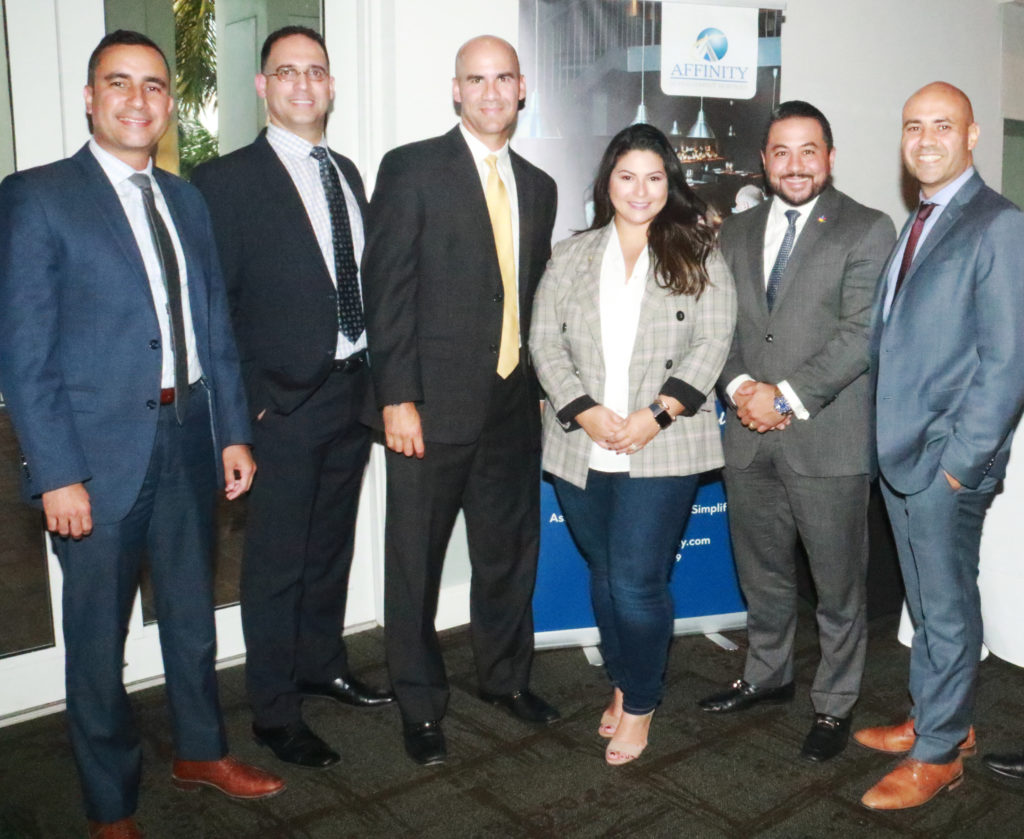
This is the second installment of Thoughts in Action series meant to serve as a public educational forum for board members and homeowners living in community associations.
The event was led with lively group discussions as well as open questions from the audience that can’t all be appropriately captured within a single article. The questions asked had a variety of contributions from multiple panelists. For the purpose of this article, an earnest effort was made to extract the main points of discussion from the panelists to offer some valuable and insightful tips for our readers:
When should associations start working on their budgets?
“August is a good timeframe to have a drafted version. By August, the association would have already collected at least 7 months of financial information as it relates to its actual expenses incurred and current assets and liabilities. Starting in August, also gives the opportunity to have a workshop discussion and perform additional research and analysis before a final version is sent to the owners and adopted by the board of directors,” said Pedro Garcia, Affinity Management Services.
Since associations are non-profits do they have to file taxes?
“Associations are non-profits, but this does not mean that they are exempt from any responsibility to file taxes with the IRS. Associations, in general, are obligated to file IRS form 1120 or 1120H. The form filed depends on prior compliance with timely filings, and the nature of revenues being reported. In most cases as long as the revenue being reported is mostly owner assessments and special assessments it can file the simplified form 1120H,” explained Alex Leonardo, Lanter, Leonardo & DiCrescenzo CPA firm.
How about audits? When are they due and who has to do them?
“Associations have a legal requirement to perform an annual report of financial activity prepared by an independent CPA. The type of report that the CPA prepares depends on the total annual revenues which include regular monthly assessments, special assessments, insurance proceeds, and all other income. If revenues are 150K – 300K Compiled Financial Statements will be prepared, if revenues are 300K – 500K Reviewed Financial Statements will be prepared if revenues are 500K – and above Audited Financial Statements will be prepared. Anything less than 150K will only require an internal report of cash receipts and expenses, which does not require CPA involvement,” said Leonardo.
Are reserves mandatory for condominium associations? How about for HOA’s?
“For condos, it is mandatory to present a budget with fully funded reserves. However, for HOA’s it depends if the developer has established reserves or if a prior board with the consent of the homeowners had adopted reserves,” said Salvador Jurado of Jurado Law Group.
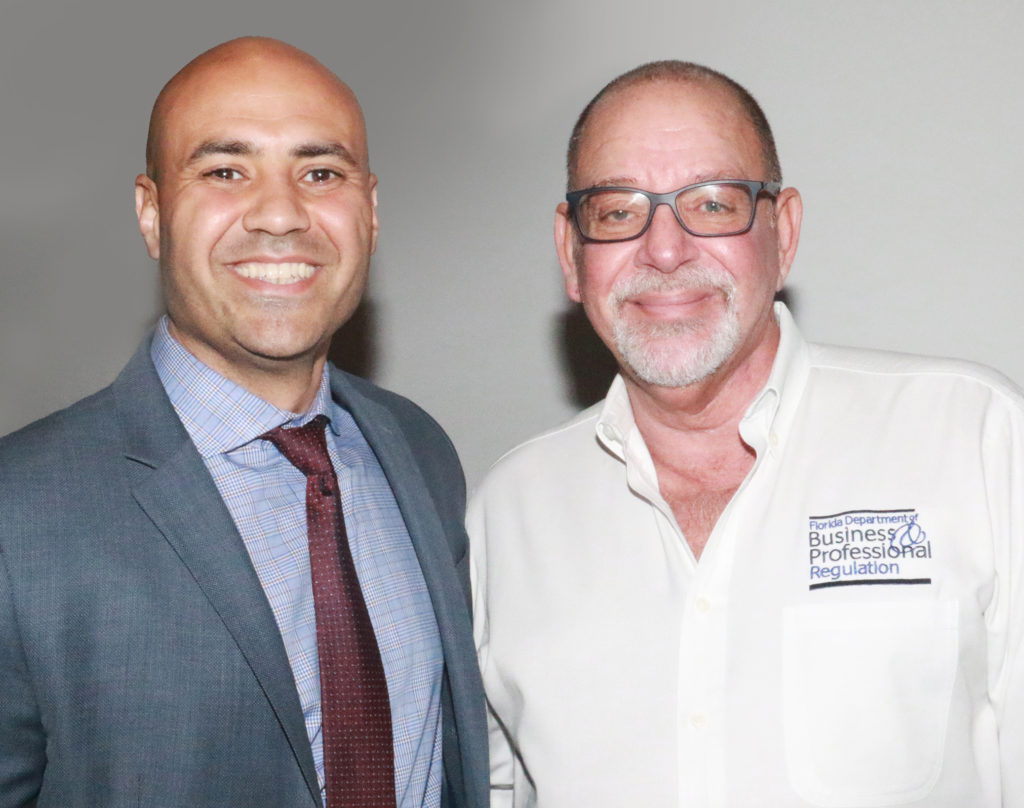 Can reserve funds be designated for the roof or used for any other purpose (i.e pool)?
Can reserve funds be designated for the roof or used for any other purpose (i.e pool)?
“When a reserve funding plan has been adopted on a straight-line basis this would prevent the board from reallocating or using funds intended for one purpose (i.e. pool) for another such as a roof. To accomplish this a special vote of owners will be required. On the other hand, the association can also change its funding plan from a straight line to pooled reserves. This will allow the board more flexibility in addressing major capital concerns with fewer compliance issues involved,” said Rafael Aquino, Affinity Management Services.
If we have reserve funds can we put it in a CD account to gain interest?
“Absolutely! Reserves can be invested to maximize interest gains. However, it is always suggested that the association only select FDIC insured banking products to invest their reserve funds. Any funds invested in non-FDIC insured products are inherently placing association funds at significant market risk of loss,” said Richard Garcia of City National Bank.
Can the Board and owners decide they do not want to collect reserves?
“Yes, they can and mainly the requirement is for owners to provide their participation and vote during the annual budget process. This vote is a formalized document rejecting the reserves in whole or in part. However, I believe that everyone participating in this panel will say that reserves are very important to prepare the association for future capital needs a major event like hurricane damage and insurance deductibles,” said Lazaro Gonzalez of Florida DBPR.
How is a budget normally adopted for condominium associations?
“A recent article published in the last edition of The Doral Family Journal provides an expanded insight into the budgeting process. The title of the article is Community Association Budgeting Made Easy. In general, the budgeting process involves information gathering about all actual expenses, and future plans of the association, analyzing the historical information and setting the right expectations for the services being offered to the homeowners, open discussions about it, and finally sending a 14-day notice to all owners with a proposed draft of the budget for their review. At said meeting, the board may still make changes and with a vote of the board members adopt the budget for the community,” explained Aquino.
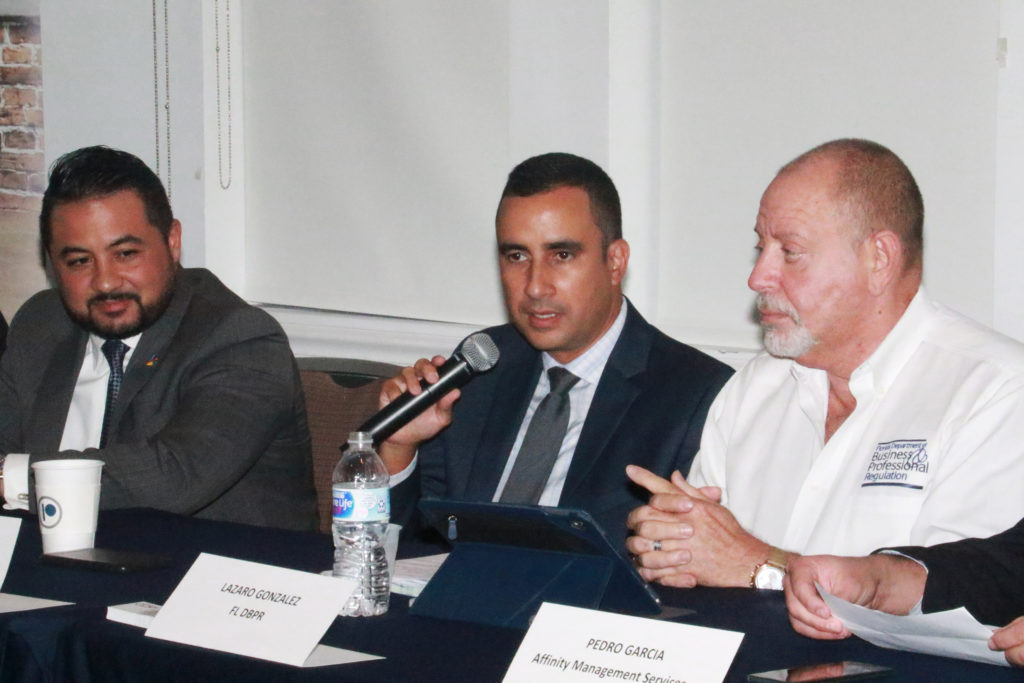 Why is a reserve study important for my community?
Why is a reserve study important for my community?
“A reserve study spells out a component list of all the community’s common areas such as pool, paint, roof, roads, and anything else that will cost more than 10K to replace/renovate, the expected life that each component has to remain before it requires major renovation or replacement, the projected cost of replacement or renovation for that component, a replacement schedule detailing when the component should be replaced/renovated, and a funding plan establishing a schedule of how much the association should be set aside for reserve contributions each year. It is important to understand that the association and its governing representatives, the board of directors, have a real responsibility to maintain the actual physical property asset. Homeowners are often surprised to know they will have to pay special assessments as a result of the lack of reserve contributions,” explained Pedro García.
What happens if a big project needs to occur, however, the association has no money?
“At this point the association will only have two options: either levy a significant special assessment to the homeowners to be collected in very quick time frame that will allow timely payments to the contractors involved or work with a qualified banker that specializes in association banking and loans to acquire a loan that can be repaid over a longer period of time and include the repayment of the loan in the annual budget or a separate long-term special assessment,” said Richard Garcia.
How are association documents broken down?
“The association governing documents are made up in four parts and these include the Declaration, Articles of Incorporation, Bylaws, and Rules. The collective content of these documents governs how the association should operate and the legal parameters it is bound by. Careful interpretation is required from a qualified attorney specializing in association law to determine how these documents are superseded or remain unaffected by ongoing changes in Florida laws. Not all documents are automatically superseded by Florida law and this requires careful consultation to avoid serious compliance issues as to what regulatory parameters the association must truly abide by,” said Jurado.
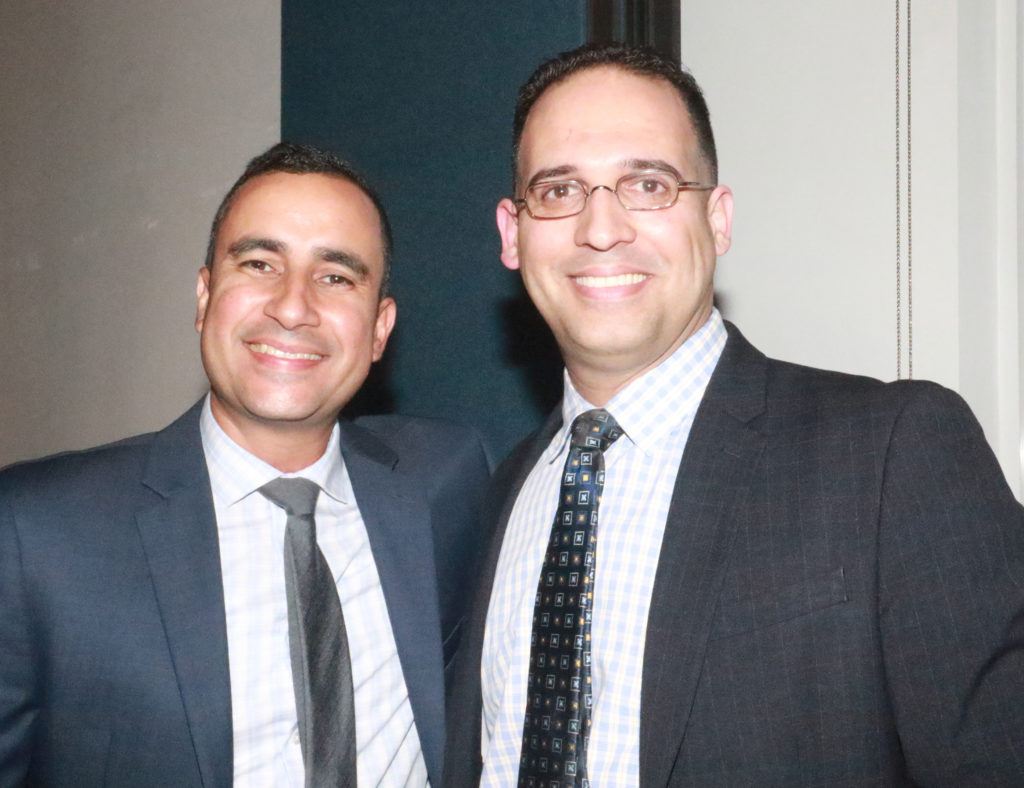 How do I know my HOA or condo rules? How can I obtain a copy for my records?
How do I know my HOA or condo rules? How can I obtain a copy for my records?
Pedro Garcia, commented“The governing documents, which include the rules of the community can be easily accessed for free from the county clerk of courts website, a copy can be acquired from the management company for a small fee, and the very best way to get this is at the time of purchase of the property and/or unit.”
Can you amend or add to your association documents? What is the process?
“Yes, the governing documents can be amended. However, the requirements for this will change from community to the next and in general, the process of this will be determined by review of what the governing documents say about this matter and the role FL statutes. In general, a vote will be required of homeowners to perform such as change,” said Jurado.
Do owners have a say in community affairs? Who can vote?
Aquino commented: “A community association is a smaller version of our American government structure, a form of representative democracy. We vote for an individual to serve in an official capacity, the board, on our behalf. We do our best when selecting this individual to honor with our vote by knowing how they feel about the important issues and their preparation for the office they seek to serve in. We do all of this, because we, the owners, will not be able to vote on every single decision that routinely comes up for the board members to handle during the course of operation. In general unit owners can vote in community elections, to have or not have reserves, changes to governing documents. Given the affordability and ease of access to technology we encourage board members to gain a pulse on community issues through community websites and electronic surveys”.
Do the board/board members have a fiduciary duty to the owners/association even if they have a management company?
“Absolutely they do. Board members are ultimately making all decisions, adopting budgets, signing contracts, and signing checks. The fiduciary responsibility cannot be delegated, outsourced, or mitigated,” said Lazaro Gonzalez.
What is the best way to file a complaint?
“The DBPR websites contain a great deal of educational information and procedural forms that will help in most cases. One of the most common complaints is an issue of accessing records. The website has a standardized form to help the individual submit a clear request for official records that can help avoid any miscommunication. Additionally, there also forms for submitting complaints about an issue relating to the community or management company,” explained Gonzalez.
Where can I look up resources on Florida statue/rules?
“Today access to this information is very easy. Both Florida legislature has the website on all active laws, and the DBPR has its website of information relating to community associations and related material,” said Gonzalez from the FL DBPR.
The Thoughts in Action educational series organized by Affinity Management Services will feature other interesting and seasonal topics that every homeowner and board member from a community association will want to attend and benefit from. Please stay tuned for the next Thoughts in Action seminar. For more information or questions for any of the panelists mentioned above, please email info@ManagedbyAffinity.com.
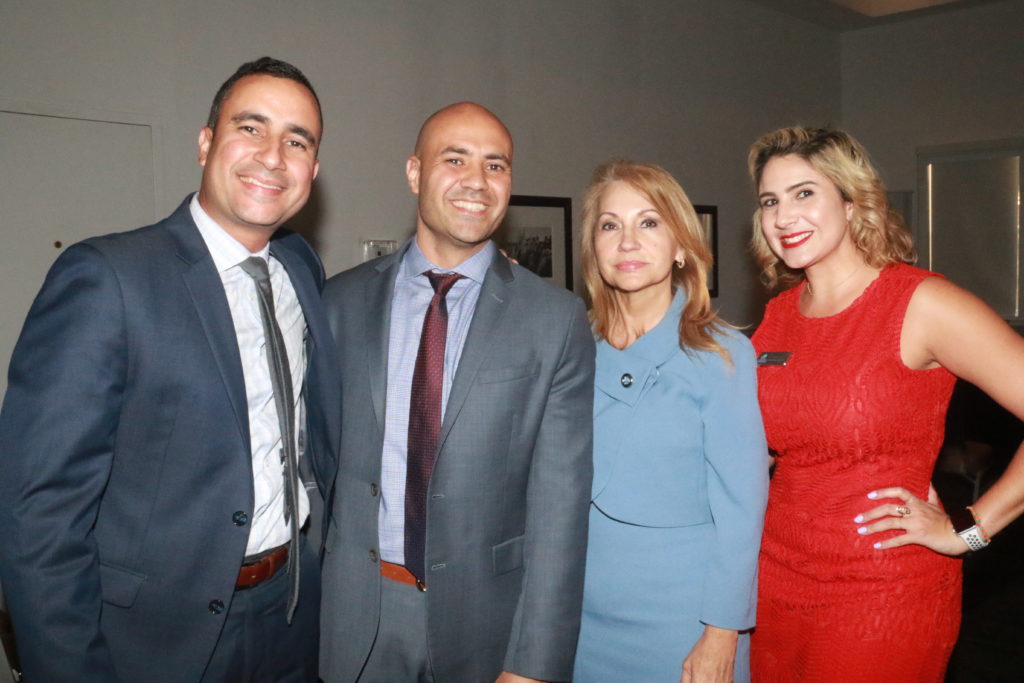

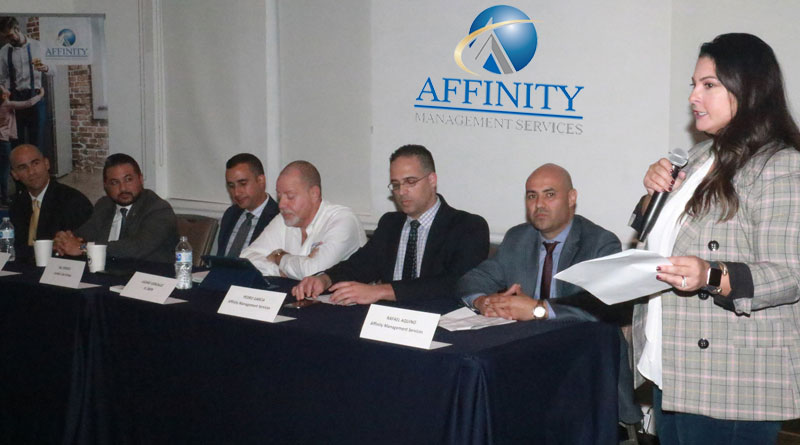
There is an old method used by inept and corrupt management companies in order to keep the community contract.
The board President doesn’t pay the monthly maintenance bill . Sure they cut the management company a check but the money is returned ” under the table” .
So as inept as the management company is , they stay because in the end it is up to the board President to fire them and they are not going to .
Not saying this is happening in your community but this has been going on for years .